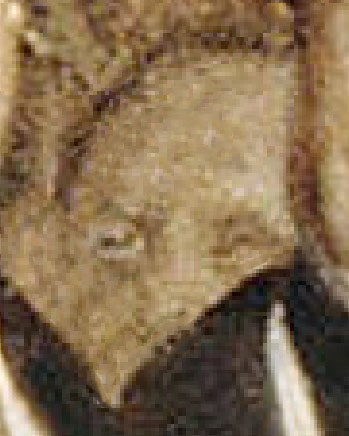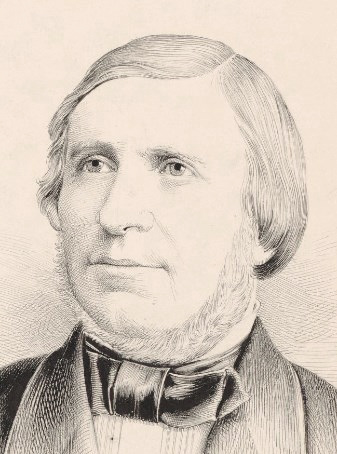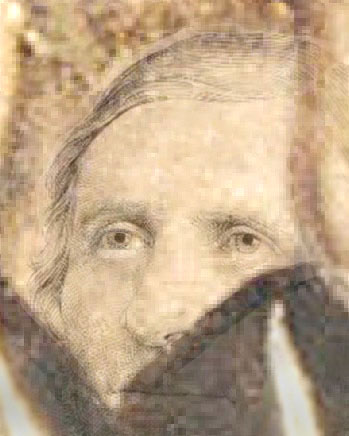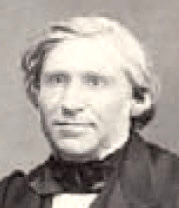Jacques-Léopold Heugel (1815–1883), journalist, publisher
1st image: Soirée; 2nd: by Thadée (c.1855); 3rd: superposition 1 & 2; 4th: by Desderi (c.1850).
This is the second partially visible face in the painting. Given the crowded composition, there was no need to fill empty space. Instructed by de Nieuwerkerke16 about who to include, I assume Biard36 did not add it without permission. It is not an elite guest: that would have been highly inappropriate.
This individual may have attended the soirées, not as a guest or performer, but in a supporting capacity. A servant, out of many, would be illogical. My investigation, late 2015, led me to a possible facial and logical match with Leopold Heugel, the journalist and director of the weekly music journal Le Ménestrel.
Heugel wrote over fifty reviews of the Louvre vendredi-soirées, offering detailed observations that only someone present on-site could provide. Both de Nieuwerkerke, who asked him, the performers, the guests, and the Louvre benefited from the publicity his coverage brought. The two images (engraving and photo) of Heugel offer a fair resemblance, as can be seen in the third image where I blended the painting with the engraving.
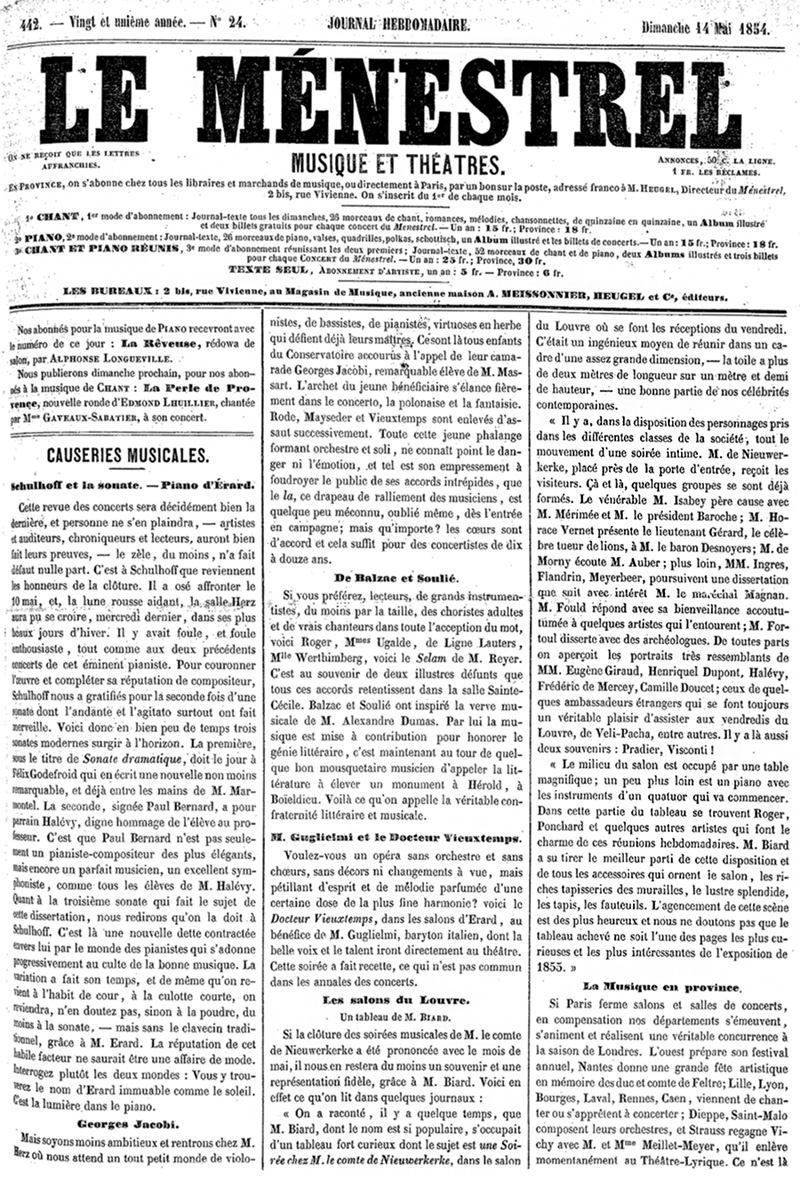
The benefits of Heugel’s work extended beyond the Louvre and de Nieuwerkerke. The news and reviews published in Le Ménestrel not only supported the events he covered but also elevated his publishing company, Éditions Heugel —founded in 1839 with guitarist and composer Meissonnier— into one of Europe’s foremost music publishers. In 1980, it became part of the Wise Music Group.
Heugel was highly regarded for his amiable demeanor, ever-present friendly smile, and exceptional skills, making him a valued figure among the aristocracy, and thus at the vendredi-soirées. Known for his discretion and ease, he was welcomed in all circles, from Rothschild bankers to the artists he interviewed in their dressing rooms.
His role as an intermediary between writers, composers, and musicians was evident in the letters of praise he received from prominent figures such as Duprez21a, Halévy19, Lefebure-Wély29, Meyerbeer76, de Musset73, Nadaud14, and Roger04a —all of whom are featured in this painting.
A tireless worker, Heugel began his days at 6 a.m. in his editing office and attended multiple musical performances each evening. This demanding schedule ultimately took a toll on his health, and he succumbed to complications from an ulcer at the age of sixty-eight. His legacy endured as his son continued the publishing company.
